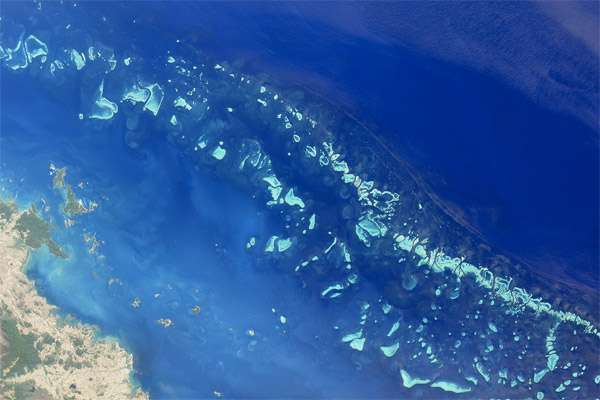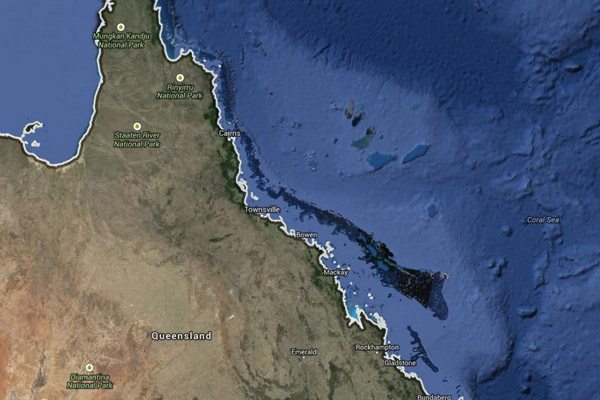
This nadir true-color image was acquired by the Multi-angle Imaging Spectroradiometer (MISR) instrument on August 26, 2000, and shows part of the southern portion of the reef adjacent to the central Queensland coast. Image and caption courtesy of NASA
A convening of nearly 600 tropical biologists and conservation scientists has called upon the Australian government to strengthen protection of the Australia’s Great Barrier Reef. The declaration, issued at the annual meeting of the Association for Tropical Biology and Conservation (ATBC), comes as Prime Minister Tony Abbott pushes to allow industrial dumping in the Great Barrier Reef Marine Park as well as port development in a nearby coastal area.
“The Association for Tropical Biology and Conservation (ATBC), the world’s largest organization dedicated to the study and conservation of tropical ecosystems, is concerned about plans for port development and associated dredging in the Abbott Point area,” read the declaration issued on the final day of the four-day meeting.
ATBC went on to ask the government to fully evaluate the costs of environmental damage from port development within the Great Barrier Reef Lagoon and additional port development in the the Abbott Point area. It noted that the reef contributes more than $5 billion annually to the Australian economy and sustains almost 70,000 jobs.

Australia’s Great Barrier Reef as seen on Google Earth
ATBC added that should these projects move forward, the government should prohibit the dumping of dredge waste into marine ecosystems.
“Placing the dredge in contained terrestrial sites far from major courses should be explored as an alternative,” said the resolution.
ATBC’s declaration came just days after Australian scientists told a Senate committee that the world’s largest reef will be in a “pretty ugly” state by 2050.
“The reef is in the worse state it’s ever been in since records began,” Peter Mumby, president of the Australian Coral Reef Society, told the Senate, according to Australian Associated Press. “There is so much scope to improve governance.”














